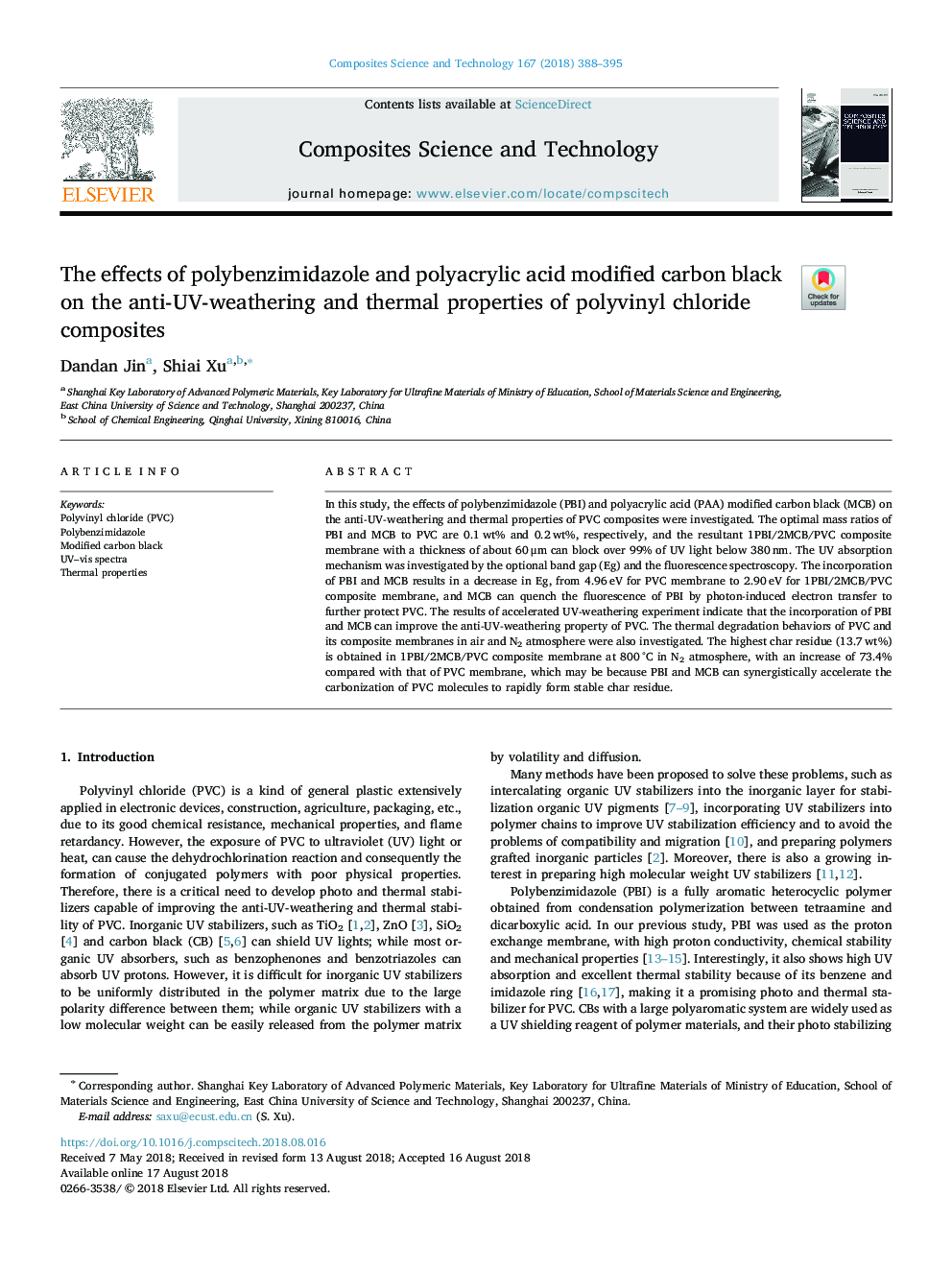| کد مقاله | کد نشریه | سال انتشار | مقاله انگلیسی | نسخه تمام متن |
|---|---|---|---|---|
| 11004258 | 1469459 | 2018 | 8 صفحه PDF | دانلود رایگان |
عنوان انگلیسی مقاله ISI
The effects of polybenzimidazole and polyacrylic acid modified carbon black on the anti-UV-weathering and thermal properties of polyvinyl chloride composites
ترجمه فارسی عنوان
اثرات پلی بگنزیمیدازول و کربن سیاه اصلاح شده با پلی کریل اسید بر خواص ضد اشعه ماوراء بنفش و خواص حرارتی کامپوزیت های پلی وینیل کلرید
دانلود مقاله + سفارش ترجمه
دانلود مقاله ISI انگلیسی
رایگان برای ایرانیان
کلمات کلیدی
موضوعات مرتبط
مهندسی و علوم پایه
سایر رشته های مهندسی
مهندسی (عمومی)
چکیده انگلیسی
In this study, the effects of polybenzimidazole (PBI) and polyacrylic acid (PAA) modified carbon black (MCB) on the anti-UV-weathering and thermal properties of PVC composites were investigated. The optimal mass ratios of PBI and MCB to PVC are 0.1â¯wt% and 0.2â¯wt%, respectively, and the resultant 1PBI/2MCB/PVC composite membrane with a thickness of about 60â¯Î¼m can block over 99% of UV light below 380â¯nm. The UV absorption mechanism was investigated by the optional band gap (Eg) and the fluorescence spectroscopy. The incorporation of PBI and MCB results in a decrease in Eg, from 4.96â¯eV for PVC membrane to 2.90â¯eV for 1PBI/2MCB/PVC composite membrane, and MCB can quench the fluorescence of PBI by photon-induced electron transfer to further protect PVC. The results of accelerated UV-weathering experiment indicate that the incorporation of PBI and MCB can improve the anti-UV-weathering property of PVC. The thermal degradation behaviors of PVC and its composite membranes in air and N2 atmosphere were also investigated. The highest char residue (13.7â¯wt%) is obtained in 1PBI/2MCB/PVC composite membrane at 800â¯Â°C in N2 atmosphere, with an increase of 73.4% compared with that of PVC membrane, which may be because PBI and MCB can synergistically accelerate the carbonization of PVC molecules to rapidly form stable char residue.
ناشر
Database: Elsevier - ScienceDirect (ساینس دایرکت)
Journal: Composites Science and Technology - Volume 167, 20 October 2018, Pages 388-395
Journal: Composites Science and Technology - Volume 167, 20 October 2018, Pages 388-395
نویسندگان
Dandan Jin, Shiai Xu,
